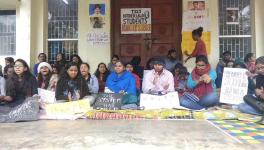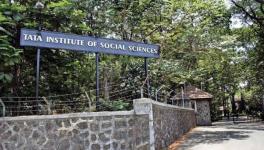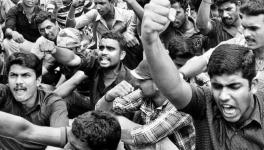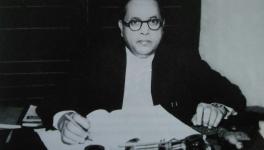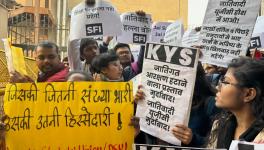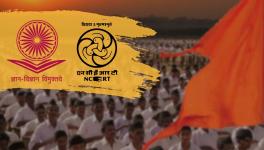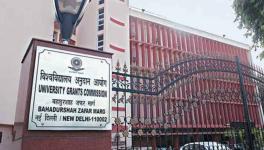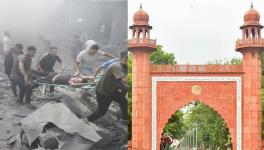BJP MP Raises Question in Rajya Sabha on Pakistani Author, Academicians Flag Concerns
New Delhi: A question by Rajya Sabha Member from Bharatiya Janata Party (BJP) Harnath Singh Yadav has triggered a row after University Grants Commission (UGC) asked Registrars of All Central Universities to furnish details of books written by a Pakistani author who has made derogatory references in relation with the country. The question further sought information about possible scrutiny by authorities of books written by a particular author.
The question read, “Whether Government has taken cognizance of the fact that a book by a Pakistani author is being taught at Aligarh Muslim University, Jamia Millia Islamia or any other educational institution in the country and the language is derogatory to Indian citizens and also supports terrorism; if so, the details thereof, and whether Government should consider to scrutinize the contents of textbooks written by the said Pakistani author and take action against the persons responsible for the same?”
NewsClick spoke to Harnath Singh Yadav to know if he could reveal the name of the author and books written by him. He said, “I cannot recall the name of the book or author but this particular author has been spewing venom against the country. The issue was raised to me by members of Akhil Bharatiya Vidyarathi Parishad (ABVP).”
The conduct of the regulator has been questioned by over 200 academicians including prominent historian Romila Thapar, Sociologist Satish Deshpande and Literary Critic Professor Apoorvanand. The teachers maintained that the language of the question can only be read as being deliberately ambiguous. While it appears that a specific book by a specific author is the subject of the question, neither the author nor the book is named. Surely this is not simply an error?
Talking to NewsClick over the phone, Apoorvanand from Delhi University said that if MP does not know about the author or the book, then the clear intent of the question is to implant suspicion in the minds of the people. He emphasised that the Rajya Sabha secretariat follows a certain protocol over accepting questions. Since the question remains ambiguous and vague, it should not have been accepted in the first place. “Even though he is not specifically mentioning the books, he links two universities, Aligarh Muslim University and Jamia Millia Islamia with such books. These universities are minority institutions which have been catering to Muslim students. So, it creates an impression in the minds of a certain section of the Hindu community which has been seeing these universities with a suspicion that the students here are reading anti-national text,” he said.
He said that departments will engage in self-censorship and drop Pakistani authors from the syllabus. “When ABVP objected to the essay Three Hundred Ramayanas by Ramanujam and beat professors in the history department of Delhi University, our VC suggested that why we need to teach a controversial text? The essay was later dropped. The same thing will happen to Pakistani authors,” Apoorvanand added.
He added that the citizens of the country have been served a very morphed image of Pakistan and if universities start abandoning Pakistani authors, we will not come to know about the other side of it. “Pervez Hoodbhoy and Mubarak Ali have been consistently speaking against fundamentalism in that country but we will never come to know about it if we abandon their texts,” he said.
Abha Dev Habib, Secretary, of Democratic Teachers Front, maintained, “Whether, in the sciences or the humanities, scholarship has always been a site of contestation, argument and criticism. Our cultural and historical texts are filled with images and references that might well be perceived as derogatory by various groups (for example, by Dalits, women, the differently abled, people of different religions or regions, and so on), yet we cannot, on that account, stop teaching all such texts. On the contrary, such images must be openly and critically discussed in the classroom, if only to think about them more seriously and hence avoid their habitual replication.”
A statement by the academicians read that leaving the book unnamed implies that any book by any Pakistani author that might possibly be read as being “derogatory to Indian citizens” and “supporting terrorism” must not be taught in any Indian university; that teaching any such book will result in punitive action and perhaps criminal charges being lodged against teachers. The letter from the UGC has the subject line "Pakistani Author's Book Prescribed at Educational Institution in the Country," which turns the parliament question into a pretext to collect information on and place under suspicion all books by Pakistani writers discussed in Indian universities.
It added, “The punitive threat mentioned at the end of the note seems to foreclose any possibility of discussion or dialogue regarding textbooks chosen for particular courses. It assumes that a teacher who assigns a reading must agree with all the arguments of the assigned text. But teachers do not present texts—especially works of fiction or even historical accounts—as if they were gospel truth. It is more often the case that syllabi are made, especially in the Humanities and the Social Sciences, to expose students to varied historical and cultural perspectives. Our role as teachers is precisely to encourage students to discuss, question and learn about these perspectives, not to endorse or follow them uncritically.”
The answer to the question was not uploaded on the website of Rajya Sabha till this report was published.
Get the latest reports & analysis with people's perspective on Protests, movements & deep analytical videos, discussions of the current affairs in your Telegram app. Subscribe to NewsClick's Telegram channel & get Real-Time updates on stories, as they get published on our website.









